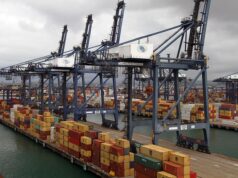IT’S been more than 2 years since the passage of the Customs Modernization and Tariff Act (CMTA) and finally, the new rules on Post Clearance Audit (PCA) and Prior Disclosure Program (PDP) have been issued through Customs Administrative Order (CAO) No. 1-2019.
Post Clearance Audit Group. As a background, the customs audit function was transferred from the Bureau of Customs (BOC) to the Department of Finance (DOF) in late 2013. Under CMTA, PCA is a function of the Bureau of Customs (BOC). Executive Order (EO) No. 46, entitled “Reviving the Post Clearance Audit Function of the Bureau of Customs (BOC) and Institutionalizing the Functions of the Financial Analytics and Intelligence Unit of the Department of Finance (DOF)”, was issued on October 20, 2017.
Under EO 46, the Post Clearance Audit Group (PCAG) shall be constituted and headed by an Assistant Commissioner under the supervision of the Commissioner.
Within 3 years from the payment of duties and taxes, PCAG shall conduct an audit examination, inspection, verification and investigation of records pertaining to any goods declaration.
With the recent issuance of CAO 1-2019, BOC is expected to issue new customs audit notices and these cases would be in addition to ongoing audit of pending cases that were transferred from DOF to BOC.
International Best Practice. PCA is an international best practice aimed at increasing trade facilitation, encouraging voluntary disclosures, reducing incidence of fraud and protecting government revenues. It is a system where customs conduct compliance audits after imported goods have been released from customs custody. The traditional practice is to conduct verification at the time of importation, which, in many instances, delay the release of the imported goods. In principle, PCA should lead to:
- enhanced customs compliance by making it a shared responsibility between the BOC and the importer;
- accelerated clearance of imported goods through increased trade facilitation and control in the processing of import transactions; and
- efficient allocation of the BOC’s limited resources.
Salient Features. We have outlined below the major revisions provided under the new rules.
- The coverage for customs audit includes regular importers, locators in Free Zones (PEZA zones and Freeports) and those “ordering imported goods from a local importer or supplier in a domestic transaction”. Under certain instances, customs may audit those indirectly importing goods through agents, affiliate companies or trading partners engaged in direct importation.
- With regard to the audit procedure, an “exit conference” after the formal audit is no longer mandated as previously provided in the old rules. Customs auditors are required to complete the audit within 120 days.
- After the conduct of the formal audit, a request for reconsideration or reinvestigation may be filed upon receipt of the deficiency assessment. The DOF and BIR shall be provided with copies of the final audit results.
- Any deficiency assessment arising from the audit shall be subject to the legal interest of 20% per annum from the date of “final assessment” as defined under the CMTA and regulations in addition to the penalty that may be imposed, whether administrative or criminal in nature.
- Under the PDP, an application may still be submitted within 90 days from receipt of an Audit Notification Letter (ANL). If no ANL has been issued yet, a PDP applicant shall be subject to legal interest of 20% per annum on the deficiency taxes and duties. An additional 10% penalty shall be imposed on an applicant already covered by an ANL, in addition to the legal interest.
Preparing for Customs Audit. Companies must first ensure that import records are kept within three years from importation. Additionally, companies must guarantee that financial and accounting records for value declarations to customs are not only available but also readily accessible to customs. Companies must not only keep the records but must also ensure they are available and accessible.
Secondly, companies must internally conduct regular compliance reviews to ensure that import transactions are compliant with trade and customs rules and regulations. Compliance may be a problem for many companies for these reasons: (1) companies look at customs operations more from a logistics perspective rather than from an indirect tax compliance concern; (2) customs operations are normally outsourced to logistics companies which are mostly not concerned with compliance; and (3) companies do not have internal knowledge and competence for ensuring customs and trade compliance.
If a company has received an ANL, an immediate recourse is to conduct a high-level diagnostic study on its customs and trade operations to determine the level of compliance, determine the risk areas, and confirm the option for prior disclosure.

Agaton Teodoro O. Uvero is an international trade lawyer and a logistics and supply chain consultant. He is the Editorial Board Chairman of Asia Customs and Trade, an online portal on customs and trade developments affecting global trade and customs compliance in Asia. For questions, email him at agatonuvero@customstrade.asia (www.customstrade.asia).












